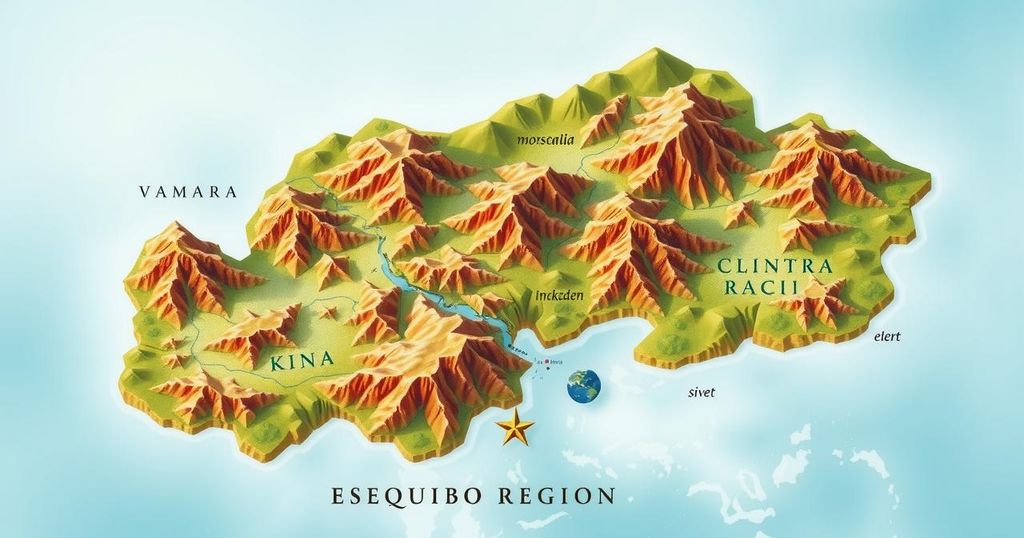Venezuelan President Nicolas Maduro accused Guyana of illegal actions in the disputed Esequibo region, claiming that Guyana has allowed ExxonMobil to extract oil in non-demarcated waters. Venezuela plans to take measures against these operations, emphasizing that they violate international law. Amid rising tensions, Caricom has urged both nations to refrain from further provocations.
Venezuelan President Nicolas Maduro has accused Guyana of illegal actions in the disputed Esequibo region, which is central to their ongoing sovereignty conflict. In a recent interview, Maduro claimed that Guyana’s dealings, particularly with US oil company ExxonMobil, are unlawful due to the lack of international demarcation of the waters involved.
Maduro emphatically stated, “This is absolutely illegal,” addressing Guyana’s oil extraction activities. He expressed Venezuela’s intention to enact measures to cease these operations and condemned the cooperation with ExxonMobil.
The Esequibo region, rich in natural resources, has been a point of contention for decades. On March 1, Guyanese President Irfaan Ali reported naval interactions near an ExxonMobil platform, highlighting rising tensions. Venezuela countered, accusing Guyana of disseminating misleading information related to the incident.
Additionally, Venezuelan officials reported that 28 foreign vessels involved in drilling are operating in the contested waters, further asserting that these actions breach international law. The Caribbean Community (Caricom) has urged both countries to prevent escalation and avoid provocations.
The Esequibo dispute has historical roots tracing back to Guyana’s colonial period, with an 1899 arbitration establishing the Esequibo River as its boundary. Yet, following Guyana’s independence in 1966, the territorial dispute has persisted, impacting approximately 125,000 residents in the region.
In summary, Venezuelan President Nicolas Maduro’s accusations against Guyana underscore the escalating tensions regarding the Esequibo region, marked by allegations of illegal oil extraction by ExxonMobil. The international community, notably Caricom, has emphasized the necessity for both nations to mitigate escalating hostilities. Given the historical context and current developments, the situation remains a critical geopolitical issue requiring careful navigation by both parties.
Original Source: www.aa.com.tr




